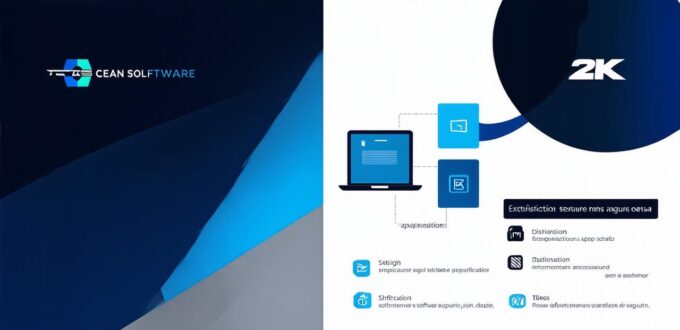What is General Software?
General software, also known as system software or utility software, is a type of software that provides essential services necessary for the proper functioning of a computer or device. This software is designed to manage the underlying hardware and software of a computer, making it easier for users to interact with their devices and perform various tasks.
Some examples of general software include operating systems like Windows, macOS, and Linux; drivers for peripherals like printers and cameras; and productivity tools like Microsoft Office and Google Suite. These programs provide essential functions such as file management, data storage, communication, and networking. They are considered “general” because they are not specific to any particular application or industry but rather serve a wide range of users.

General software is critical for the smooth operation of computers and devices. Without it, users would be unable to perform basic tasks like storing files, sending emails, or printing documents. General software is also essential for ensuring the security and reliability of computer systems, as it provides critical updates and patches to address vulnerabilities and bugs.
What is Application Software?
Application software, on the other hand, is designed to perform specific tasks within a particular industry or field. These programs are built upon general software and use its underlying functionality to perform specialized tasks such as data analysis, graphic design, video editing, or scientific simulations.
Examples of application software include Photoshop for graphic design, Excel for data analysis, PowerPoint for presentations, and Final Cut Pro for video editing. These programs are typically used by professionals in their respective fields to accomplish specific tasks that require specialized skills and knowledge.
Application software is considered more specific than general software because it is designed to serve a particular purpose or industry. It is also usually more expensive than general software because of the specialized features and capabilities it provides. However, application software can be highly valuable in terms of efficiency and productivity for those who use it effectively.
Differences between General and Application Software
Despite their differences, general and application software are closely related and often work together to provide a complete solution for users. Here are some key differences between these two types of software:
- Purpose: General software provides essential services necessary for the proper functioning of a computer or device, while application software is designed to perform specific tasks within a particular industry or field.
- Accessibility: General software is usually more accessible and user-friendly because it is designed to serve a wide range of users, while application software may have more complex interfaces due to its specialized capabilities.
- Cost: Application software is often more expensive than general software because of the specialized features and capabilities it provides, while general software is typically less expensive or free.
- Functionality: General software provides basic functions such as file management, data storage, communication, and networking, while application software provides specialized functionality related to a particular industry or field.
- Customization: Application software is often more customizable than general software because it allows users to tailor its capabilities to their specific needs and preferences.
- Maintenance: General software requires regular maintenance and updates to ensure its security and reliability, while application software may require more frequent updates to address specific industry-related issues or changes in technology.
The Importance of General Software for Application Development
As an application developer, it is important to understand the role of general software in your work. General software provides essential services that enable you to develop and deploy applications efficiently and effectively.
Here are some examples:
- Operating systems: General software such as operating systems like Windows, macOS, and Linux provide a platform for developing and running applications. These systems also provide critical functionality such as networking, security, and data storage that is essential for application development.
- Development tools: General software such as Integrated Development Environments (IDEs) like Visual Studio, Eclipse, and Xcode provide a range of development tools that make it easier to write, test, and debug code. These tools also provide access to libraries and frameworks that enable you to build more complex applications.
- Debugging and testing: General software such as debuggers, profilers, and unit tests help you identify and fix bugs in your code quickly and efficiently. These tools can also help you optimize your code for better performance and scalability.
- Deployment and management: General software such as containerization platforms like Docker and Kubernetes enable you to deploy and manage applications more effectively. These platforms provide critical functionality such as load balancing, scaling, and monitoring that is essential for ensuring the reliability and availability of your applications.
- Collaboration and communication: General software such as version control systems like Git and project management tools like Jira and Trello enable you to collaborate more effectively with your team members and stakeholders. These tools also provide critical functionality such as task management, bug tracking, and documentation that is essential for effective application development.
Summary
In conclusion, general software and application software serve different purposes in the software industry but are closely related and often work together to provide a complete solution for users. General software provides essential services necessary for the proper functioning of a computer or device, while application software is designed to perform specific tasks within a particular industry or field. As an application developer, it is important to understand the role of general software in your work and how it can help you develop and deploy applications more efficiently and effectively.
